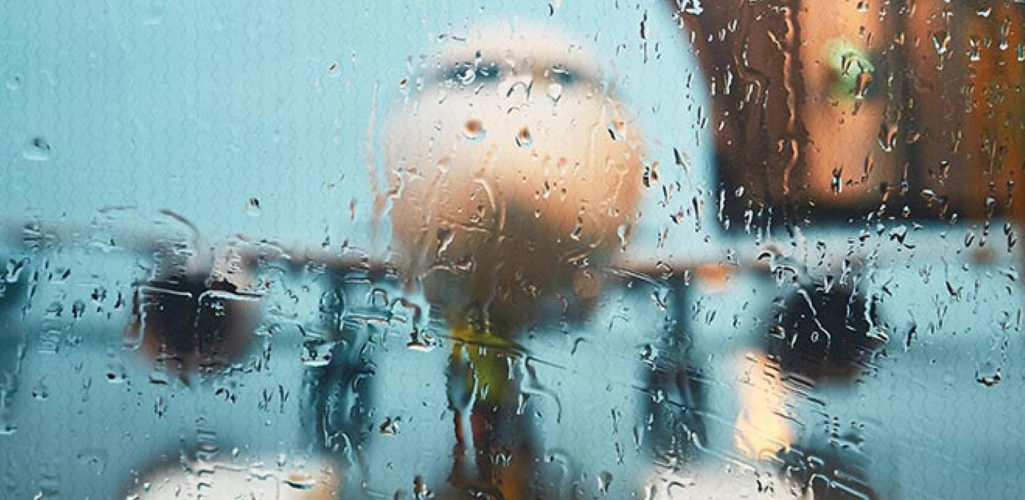When Can You Claim Flight Compensation For Bad Weather?
EU Regulation 261 provides airline passengers the right to claim compensation for flight delays and cancellations caused by bad weather if the weather is not considered “freak” or “wholly exceptional” or if the weather conditions have not forced air traffic control to limit the number of flights.
The definition of “freak” or “wholly exceptional” means weather that is unexpected. For example, heavy snowfall during summer in Egypt would be both freakish and wholly exceptional. In contrast, heavy snowfall during winter in a ski resort would be neither.
Bad weather must only affect the ‘flight in question’ for airlines to use as a defence. If your flight was delayed because of the knock-on effects of a different flight being affected by bad weather, you should be able to claim compensation.
For example, if you are booked to fly from Manchester to Paris, but the airline cancels the flight, citing bad weather in Stockholm (where the aircraft was before arriving in Manchester), you would be able to claim because your flight hasn’t been affected directly by bad weather.
Why Choose Bott and Co?
-
A History Of Success
We have claimed over £84m in flight compensation from the airlines.
-
Expert Legal Advice
Recognised not just within our industry but also by Martin Lewis as “pioneers” in our field.
-
On Your Side
Completely independent, our only focus is helping you claim for what you are legally entitled to.
-
Fully Regulated
We are members of the Solicitors Regulation Authority. Your claim is in safe hands.
You may also be able to claim compensation if there is a continuous level of bad weather at an airport. For example, if you booked a flight from London Heathrow to a ski resort and there is always bad weather at the ski resort, then it is not an extraordinary circumstance for bad weather to cause delay or flight cancellation because snow is ‘inherent’ at the ski resort.
The airline would have had to consider normal weather conditions when deciding whether to allow its aircraft to fly into that airport as part of its daily operations.
Flight delays and cancellations caused by bad weather can sometimes be difficult and time-consuming to prove. The simplest way to see if you can claim compensation for your flight delay is to add your flight number and the date you flew to our flight delay compensation calculator. We’ll instantly check your flight and let you know how much you may be eligible to claim.
When Can You Claim Compensation For A Cancelled Flight Due To Weather?
If your flight was cancelled due to bad weather, you would be able to claim for compensation if the weather was not considered “freak” or “wholly exceptional.”
You may not be able to claim compensation for a cancelled flight due to bad weather if air traffic control has limited the number of flights. Decisions made by air traffic control are out of the airline’s control, and they would not be responsible for paying compensation.
If My Flight Is Cancelled Due To Weather, Do I Get A Refund?
Whatever the reason behind the cancellation of your flight, you are always entitled to either re-routing or a full refund on your ticket. However, you cannot claim both.
EU Regulation 261 states that airlines must issue a full refund for the price of your ticket no later than seven days after the scheduled flight if you request the cost of your ticket back.
Is Bad Weather An Extraordinary Circumstance?
Bad weather is not always an extraordinary circumstance, despite what an airline might tell you.
Weather is only an extraordinary circumstance when:
Claim Flight Compensation With Bott and Co
What Weather Conditions Can I Claim Flight Compensation For?
Flight delays caused by meteorological conditions (weather issues) can be eligible for flight compensation if the delay is more than 3 hours and depending on the severity of the weather problems. Such examples include.
When Can You Claim Compensation For Flight Delays Or Cancellations Caused By High Winds Or Rain Storms?
Other typically wintry conditions in the UK, such as high winds or heavy rain, shouldn’t usually be sufficient to cause significant flight delays.
However, if the wind is so strong that it makes landing or taking off very difficult for the pilots, air traffic control may limit the number of flights. In these instances, you would not be able to claim as the decision made by air traffic control is outside of the airline’s control.
Similarly, if heavy rainfall caused flooding at the airport and restricted the use of the runway, you would not be able to claim compensation, as this is also beyond the airline’s control.
When Can You Claim Compensation For Flight Delays Or Cancellations Caused By Snow And Ice?
You may not be able to claim if your flight is delayed or cancelled due to heavy, unexpected snowfall, as in most cases, air traffic control may choose to limit the number of flights. Decisions made by air traffic control are classed as extraordinary circumstances.
However, if your flight was delayed or cancelled because your airline didn’t have enough de-icing equipment available to ensure the usual, safe running of the aircraft, you may be able to claim, although these are sometimes difficult to prove.
Recent Successful Flight Compensation Claims
Bott and Co help couple receive £350 each in compensation after arriving on holiday to Corfu late.
We secured compensation for family of 3 who missed a day of their holiday due to flight cancellation.
Family receive £350 compensation each after Jet2 flight to Manchester from Antalya was delayed for 22.5 hours.
Family instruct Bott and Co after missing connecting flight to London due to BA departure delay at JFK Airport.
We helped family of 4 flying from Lithuania to London receive £350 each for flight cancellation.
Family of 4 returning from their holiday in Turkey arrive home 2 days late following flight cancellation.
Passengers receive £350 each after their flight to Tunisia was cancelled and rescheduled for 24 hours later.
Family going to Miami with American Airlines were rerouted to New York AND Dallas before arriving in California.
Family of 4's delay at Birmingham Airport led to missed connection in Dubai and new flight given 3 days later.
When Can You Claim Compensation For Flight Delays Or Cancellations Caused By Fog?
Fog is not uncommon, particularly in the UK, at certain times of the year, but when it is so bad that air traffic control has to limit the number of flights taking off and landing or the airport is closed, that can be an extraordinary circumstance.
If the fog is at a different airport to the one you are arriving at or departing from but delays the plane that was supposed to take you to your destination, then you may be able to claim compensation.
When Can You Claim Compensation For Flight Delays Caused By Turbulence?
Anyone who has experienced turbulence knows it can be a little unnerving – even when it’s only light turbulence.
Severe turbulence that forces a pilot to take emergency action and divert the plane is very rare, but in these cases, you would not be able to claim as this would be considered an extraordinary circumstance.
Claiming With Bott and Co
When Can You Claim For Flight Delays Caused By Ash Clouds?
One of the more famous set of mass flight delays in recent years was caused by an Icelandic volcano erupting and sending ash clouds high into the atmosphere. Due to the dangers of flying through these clouds, airlines had to ground their fleets until the ash cloud had dispersed.
Delays due to volcanic activity and ash clouds would be considered extraordinary circumstances, and therefore, the airline wouldn’t have to pay compensation.
When Can You Claim Compensation For Flight Delays Caused By Sand Storms?
Sandstorms are not a weather condition that affects the UK too often, but they can occur in hot, arid countries that people in the UK travel to, such as Dubai or Egypt.
Although it might not be surprising to experience a sandstorm in a desert country, they are not usually commonplace enough to be considered anything other than an extraordinary circumstance unless air traffic control has chosen to limit the usual number of flights.
Award Winning Customer Service
-
The UK's Most Recommended
4.7/5 Feefo score and over 730,000 happy clients
-
No Win No Fee
Our No Win No Fee Promise means you are at no financial risk when making a claim
-
Claim In Less Than A Minute
Claim up to £520 in less than a minute with our simple form
-
Get Compensation Quicker
Many of our flight compensation claims are settled within 60 days.
How Do I Know If My Flight Is Eligible For Flight Compensation?
EU Reg 261 protects airline passengers whose flights departed from or arrived at a UK or EU airport on a UK or EU airline. You can claim for delayed flights that departed in the last six years. Additionally, you can claim if your flight was cancelled, your flight was diverted, or you missed a connecting flight.
Under UK law, you will be able to make a claim for EU261 compensation if your flight:
Flights Covered By EU261
| Departing From | Arriving To | Can I Claim? |
|---|---|---|
| Airport inside UK/ EU | Airport inside UK/EU |
Yes (Claimable for any airline) |
| Airport inside UK/ EU | Airport outside UK/EU |
Yes (Claimable for any airline) |
| Airport outside UK/EU | Airport inside UK/EU |
Yes (If on an EU based airline) |
| Airport outside UK/EU | Airport outside UK/EU |
No |
How Long Do I Need To Be Delayed To Claim Flight Compensation?
You are legally entitled to claim for a flight delay if your flight arrives more than three hours late, and the delay was the airline’s responsibility.
The official delay time can be recorded once one of the cabin doors has been opened.
Claim By Airline
How Much Compensation Can I Claim For Flight Delays Caused By Bad Weather?
The maximum compensation you can claim for a delayed flight is £520 per passenger. How much compensation you can claim for your flight delay will depend on the length of your delay and the flight distance.
The level of compensation increases the longer you are delayed and the further the distance of your flight.
The compensation amounts are fixed and unrelated to the ticket cost, the class of the fare you booked or whether you used air miles.
Our table below shows how much flight delay compensation you could claim.
EU261 Flight Delay Compensation Claim Amounts in UK Pounds
| Flight Distance | Less than 3 hours | 3 hours or more | More than 4 hours | Never arrived |
|---|---|---|---|---|
| All flights 1,500km or less |
£0 |
£220 |
£220 |
£220 |
| Internal EU flights over 1,500km |
£0 |
£350 |
£350 |
£350 |
| Non-internal EU flights between 1,500km and 3,500km |
£0 |
£350 |
£350 |
£350 |
| Internal EU flights over 3,500km |
£0 |
£260 |
£520 |
£520 |
How Much Compensation Can I Claim For Flight Cancellations Caused By Bad Weather?
The amount of compensation you can claim for cancelled flights caused by bad weather will depend on your circumstances. If your flight is cancelled, the airline must offer you the choice of either a full refund on your flight or a replacement flight.
If you choose to take the replacement flight and it arrives later than three hours after your originally scheduled arrival time, you may be able to claim compensation. Our guide on claiming flight cancellation compensation explains in more detail.
How Much Compensation Can I Claim If I Missed My Connecting Flight Because Of Bad Weather?
You may be able to claim compensation up to £520 if your flight delay means you missed your connecting flight and arrived at your final destination more than three hours late.
Additionally, the airline is responsible for booking you on the next available flight on any airline and providing care and assistance, including accommodation if necessary.
When You Are At The Airport, You Have A Right To Care and Assistance
In addition to your rights to claim compensation, Article 9 of EU Reg 261 states that airlines must provide passengers with a level of “care and assistance” if their flight is delayed beyond a certain number of hours.
Airline passengers are eligible for “care and assistance” if their flight is delayed at least 2 hours (for flights under 1,500km), delayed at least 3 hours (for flights between 1,500km and 3,500km), or at least 4 hours for flights over 3,500km.
Care and Assistance – Your Rights When Your Flight Is Delayed
| Flight Distance | Length of Delay |
|---|---|
| Up to 1,500km |
After 2 hours |
| 1,500km-3,500km |
After 3 hours |
| Over 1,500km and between two EU States |
After 3 hour |
| Over 3,500km |
After 4 hours |
Regardless of the reason for the delay, the airline must provide passengers with:
The airline should cover all these costs during the delay as part of their ‘care and assistance’ obligations. However, we see cases where passengers have had to use their money to buy food and drink or get taxis to and from the airports.
This right applies to delays, even if caused by what the regulation calls an ‘extraordinary circumstance’.
Landmark Bad Weather-Related Flight Compensation Cases Bott and Co Has Won
Bott and Co has settled numerous cases where passengers have been delayed due to bad weather.
Jager Vs easyJet
The passenger, Ms Jager, was due to fly from Heathrow to Nice. However, due to the aircraft being delayed on its journey from Italy to Heathrow, the passenger didn’t arrive in Nice until three hours and 12 minutes after the scheduled arrival time.
EasyJet cited the delay of Ms Jager’s flight due to bad weather at Milan Linate Airport, Italy, which meant the aircraft didn’t arrive at Heathrow on time to take Ms Jager and her fellow passengers to France.
Bott and Co proved that Jager was entitled to compensation because the weather had not affected the ‘flight in question’.
Evans v Monarch
Evans v Monarch is an important ruling because it clearly highlights that if bad weather is inherent in the running of an airline, it cannot be classed as an extraordinary circumstance.
Bott and Co argued that “aircraft fly through the skies. On occasion, they are struck by lightning. They are designed to withstand such lightning strikes, continue flying, reach their destination and then be investigated and repaired according to the manufacturer’s instructions. This is not extraordinary”.
Her Honour Judge Melissa Clarke agreed and ruled in favour of Bott and Co’s clients, Michael Evans and Julie Lee, awarding them €600 each for the delay. You can read more about the case here.
Huzar v Jet2
Although the case of Huzar v Jet2 predominantly ruled on technical problems, a significant ruling about bad weather was also made.
The Supreme Court upheld that for bad weather to be classed as an extraordinary circumstance, it must be ‘freak’ or ‘wholly exceptional’. As a Supreme Court ruling, this is binding on all other courts in England and Wales.
Meet Our Solicitors
Coby Benson

A member of The Law Society and a SRA Registered Solicitor, Coby has been instrumental in establishing flight delay compensation law in the UK, including playing a significant part in the landmark cases of Huzar v Jet2 and Dawson v Thomson at The Supreme Court.
Coby is regularly asked for comment in the national media, regularly featuring in The Daily Telegraph, The Times, The Guardian and The Independent as well as appearing on BBC Television, Sky News, ITV and BBC Radio 4 and Radio Five Live.

